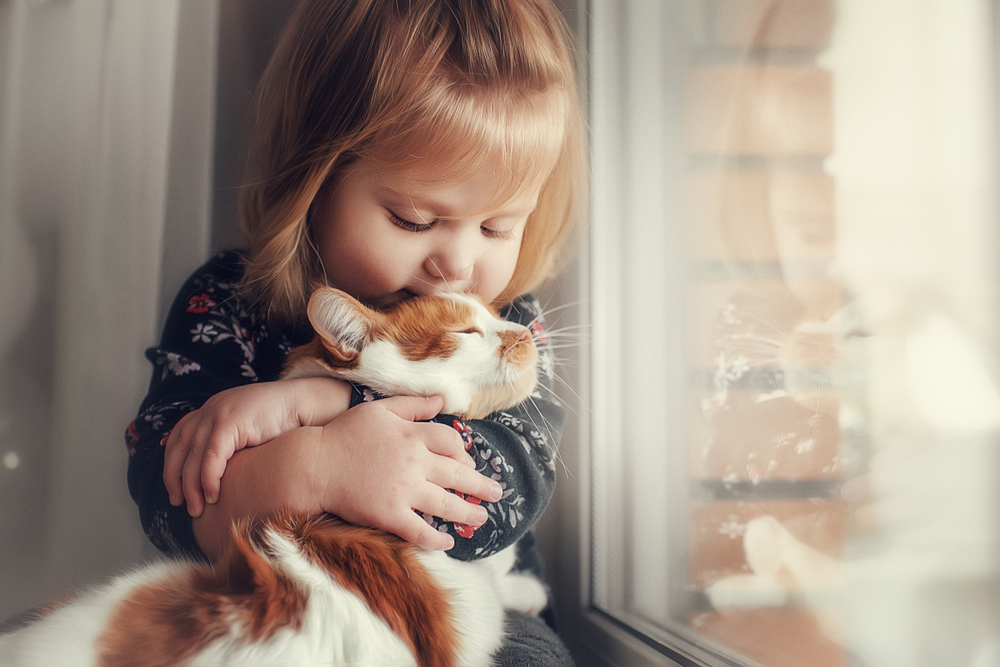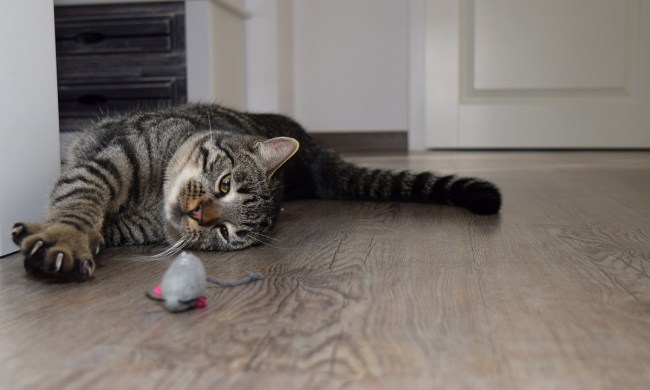Cats use their posture, movements, and vocalizations in all sorts of ways to convey important messages about how they’re feeling and what they want. At first glance, some of these behaviors might seem odd or even irrelevant, but even small actions can hold big meanings for cats.
A cat bumping its head against your body is one of these. You might think that your cat is just trying to scratch an itch or get your attention, but head bumping holds important meaning to cats. If your cat bumps his head against you, you should feel flattered. And, if you’re inclined, you can even mimic this same behavior to convey a message to your cat.
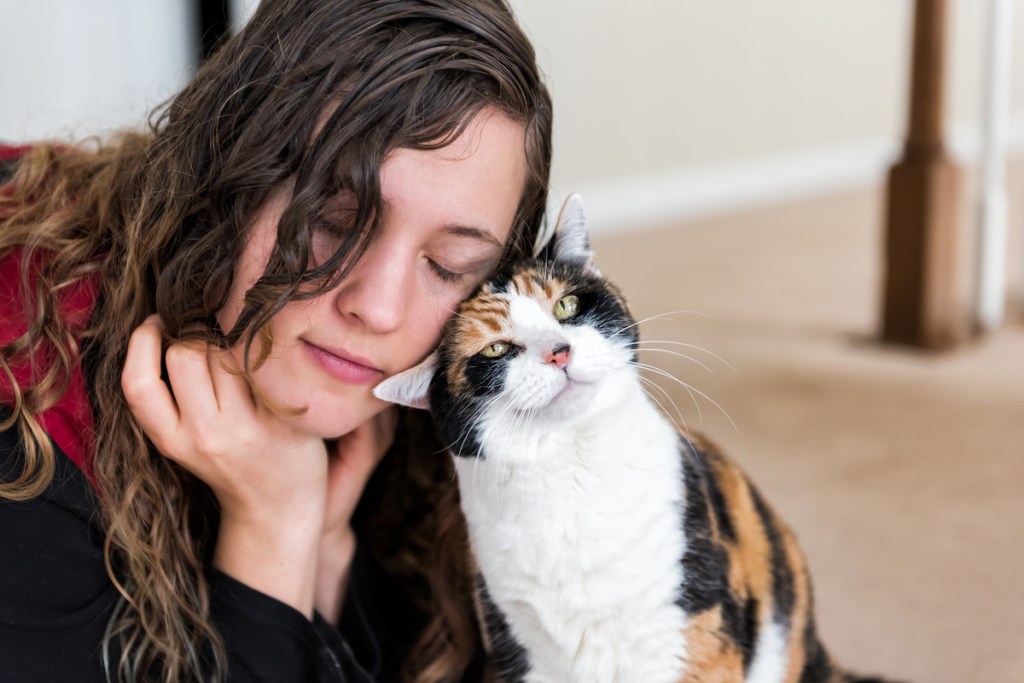
What does cat head bumping mean?
According to Animal Medical Center, when your cat head bumps you, he’s showing that he accepts and loves you. Head bumping is a way that cats demonstrate unity within their colony, so if your cat bunts against your head, face, or leg, he’s expressing that he’s accepted you as a member of his clan, and he wants other cats to know that.
The scent glands on a cat’s head produce pheromones and then those pheromones get rubbed onto you when he knocks against you. The result is that you smell like your cat, and other cats will be able to recognize that and understand that you’re a member of your kitty’s family.
It’s a good thing if your feline head bumps you. You can return your cat’s affection by gently headbutting him back. Your cat might also appreciate some chin scratches or gentle pets. Watch to see if he’s purring during this time — you can potentially use head-bumping sessions as valuable bonding opportunities.
Keep in mind that if your cat learns that he gets extra attention when he head bumps you, he might start to rub his head on you whenever he wants to be the center of attention.
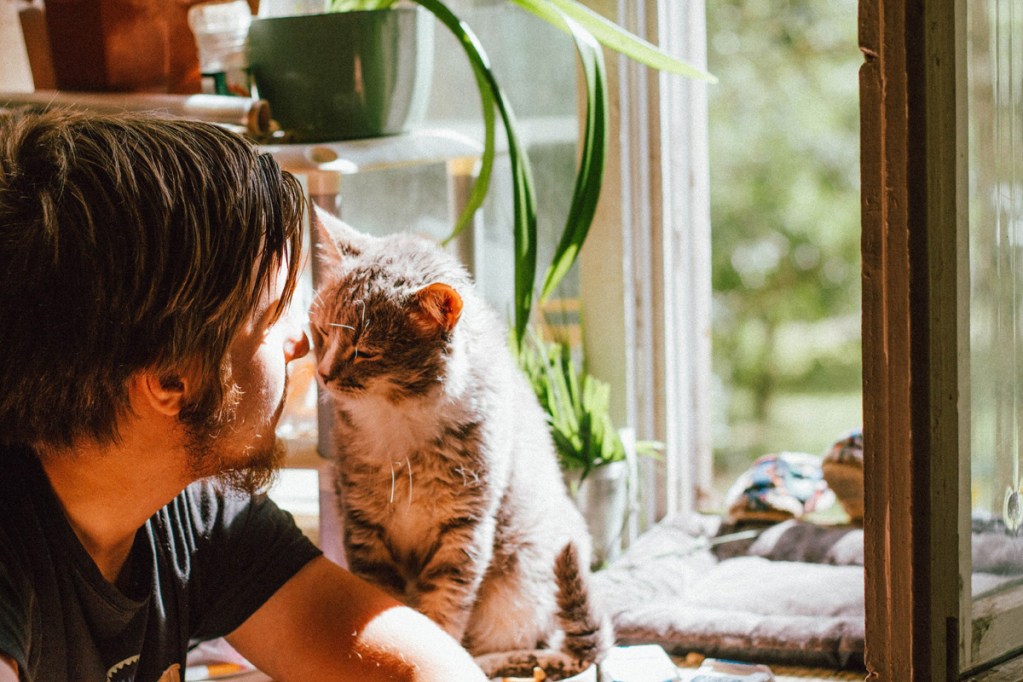
Why is my cat bumping their head on the door?
If your cat is bumping his head against objects such as the door or the furniture, he’s marking these spaces as part of his territory. PetMD explains that when your cat head bumps objects, she’s often using the scent glands in her cheek to mark them. By doing so, she identifies the objects as being familiar. Your cat is identifying her surroundings and creating a space where she feels safe. It’s a positive behavior — if your cat felt threatened and needed to mark items to keep other cats away, she’d be more likely to spray the items.
Animal Medical Center explains that it’s important to watch for the difference between head bumping and head pressing. If your cat presses her head steadily against you instead of rubbing it back and forth, she may be indicating that she’s in pain. Watch to see if she does this behavior repeatedly; if that happens, make an appointment with your vet. Your cat doc needs to perform a thorough examination to determine and treat the source of her pain.
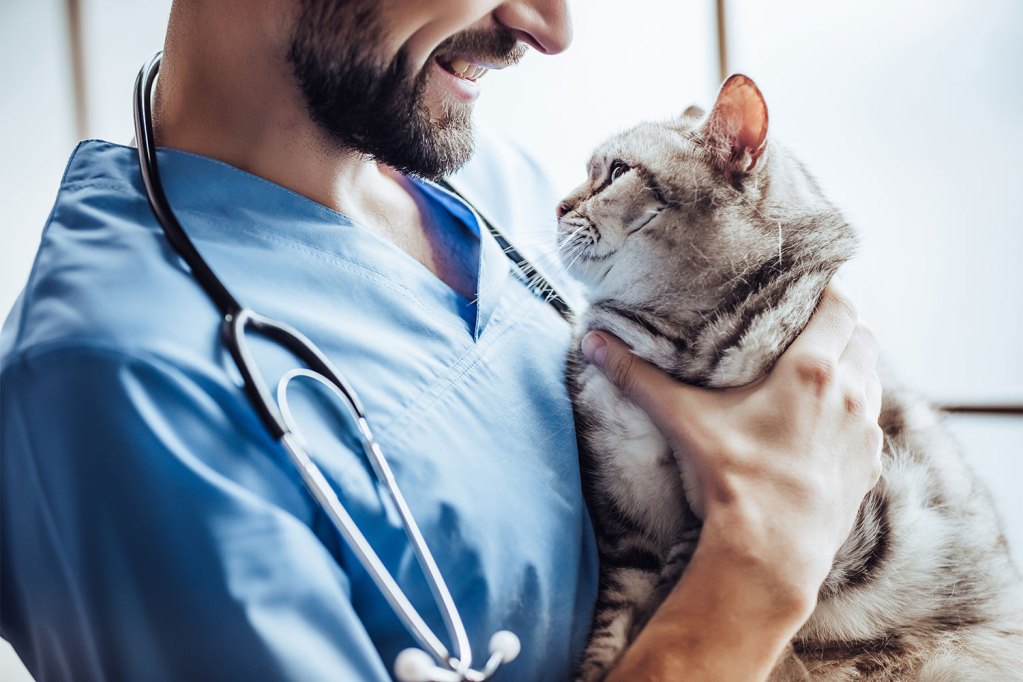
What to do if my cat hits their head?
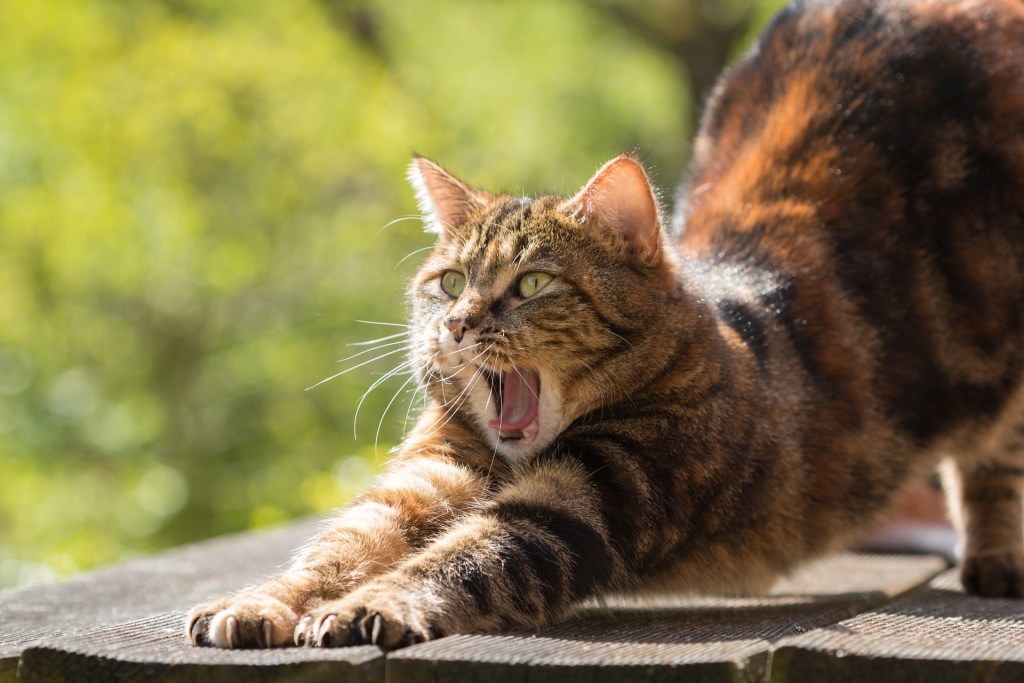
What if my cat doesn’t headbutt me?
If your cat doesn’t headbutt you, it doesn’t mean that he doesn’t accept you or love you. According to the Pet Care Clinic of Doral, some cats just aren’t big on head bumping. Because head bumping is a behavior that’s determined by a cat’s hierarchy in a group of felines, only the most confident cats practice this behavior. Your cat might not be one of the super-confident types, but that doesn’t mean he doesn’t love you.
You can look for other signs to get a sense of how your cat feels about you. Learning to read your cat’s body language can provide you with valuable information about how he feels about you and your surroundings. The more time you spend watching your cat, the better able you’ll be to understand him. Head bumps are just one way that your cat shows he’s accepted you as part of his family and that he loves you. With time, you’ll be able to tell when your cat’s feeling affectionate, when he wants attention, when he’s frightened and needs reassurance, and when he’s telling you that he’d really prefer if you just left him alone for a bit.
